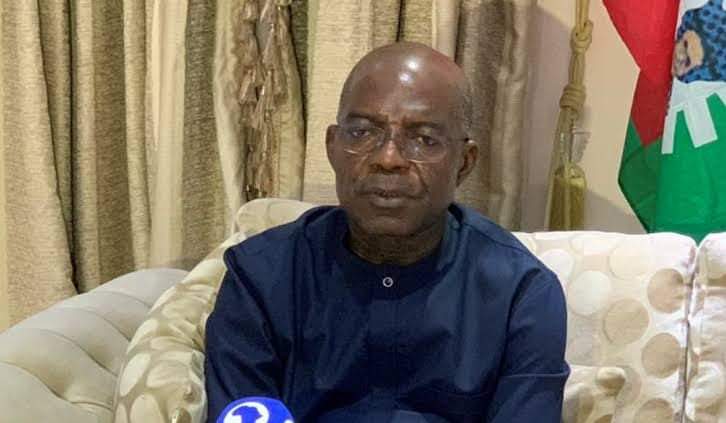By: Sheik Bin Norman (Abia State ADC Chairman)
There’s no doubt that the judgment of a Federal High Court in Kano nullifying the candidatures/elections of Labour Party candidates in Kano and Abia States did upset the applecart for the embattled party and birthed expected argy-bargy between interested parties.
Amid the hullaballoo, some sympathisers and Labour Party faithful queried the jurisdiction of the Kano Federal High Court to invalidate the election of the party’s candidates, especially in Abia State.

Verity is that the Kano Federal High Court has the jurisdiction to entertain and deliver judgment on the matter. See Section 287 Sub-section (3) of the 1999 Constitution.
What some folks failed to understand in the ensuing debate is that the Federal High Court is one in Nigeria. It has the constitutional power to sit anywhere within Nigeria’s territory to give a judgment binding on any federating unit(s).
Another subject of debate is Section 77 of the Electoral Act 2022, which requires political parties to maintain a membership register in hard and soft copy and make such available to the Commission not later than 30 days before the date fixed for primaries, congresses, and conventions.
Some have argued that this section did not stipulate any penalty for defaulters, therefore, isn’t a basis to disqualify candidates or political parties from participating in elections. Again those holding this view are ignorant of the provisions of the Electoral Act.
The best approach to construing a constitutional mechanism comprising interrelated provisions is to give it a proportional structure hence the need to look at sections 84 (12) and (8) of the 2022 Electoral Act as amended.
Section 84 (12) of the electoral act 2022 provides thus:
“No political appointee at any level shall be a voting delegate or be voted for at the convention or congress of any political party for the purpose of the nomination of candidates for any election.”
Remember that a High Court Umuahia declared this sub-section unconstitutional and ordered the AGF to efface it from the Electoral Act because it infringes on people’s fundamental rights.
However, the judgment did not stand. Why? See Sub-section (8):
“A political party that adopts the system of indirect primaries for the choice of its candidate shall clearly outline in its constitution and rule the procedure for democratic election of delegates to vote at the convention, congress or meeting.”
The words ‘democratic election’ in this context means emerging by majority vote cast. In other words, whatever method of primaries (consensus, direct or indirect) any political party chooses, the final stage for the nomination of party candidates includes Congress or a Convention to elect, ratify or confirm the nominated candidate by the elected delegates. See section 84 (3) and (11).
Suffice it to say that the Electoral Act assumes that those seeking to vote (delegates) or voted for (aspirants) must have complied or fulfilled the provision of Section 84 (12) of the Electoral Act, i.e., resigned within the stipulated 30 days before party primaries.
The confusion is that some politicians and political parties believed that by adopting the direct primaries, the aspirants seeking elective office get elected by direct vote of political party members instead of the delegates at a convention or congress.
In indirect primaries, the word ‘shall’, used in sub-section (8), clearly outlined the rule as mandatory. It is binding on all political parties.
Someone may ask, what if the party constitution did not previously provide for such a democratic process?
The answer is that the law mandated the party to amend its constitution to conform with the new Electoral Act of 2022.
Conducting party primaries without complying with the 2022 Electoral Act is a banana skin for political parties. See section 84 (13):
“Where a political party fails to comply with provisions of this Act in the conduct of its primaries, its candidate for election shall not be included in the election for the particular position in issue.”
To be continued on Thursday (tomorrow)






